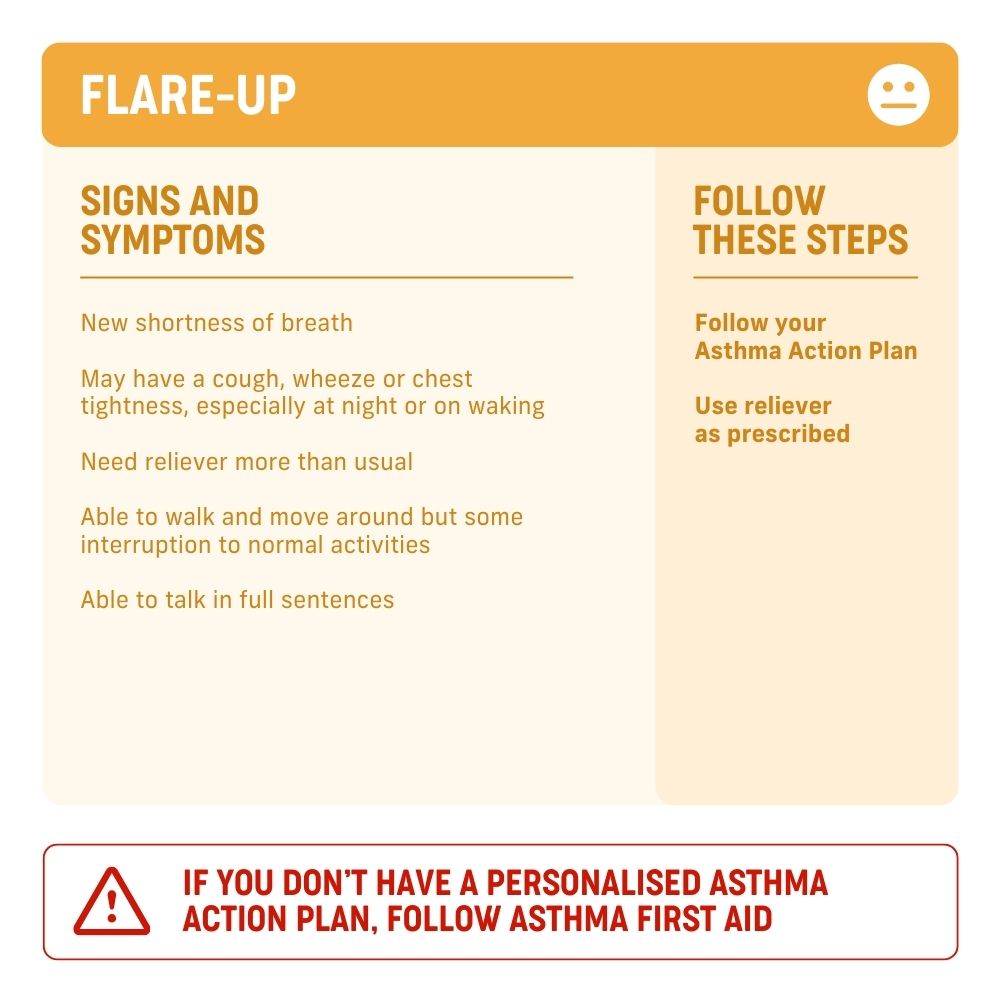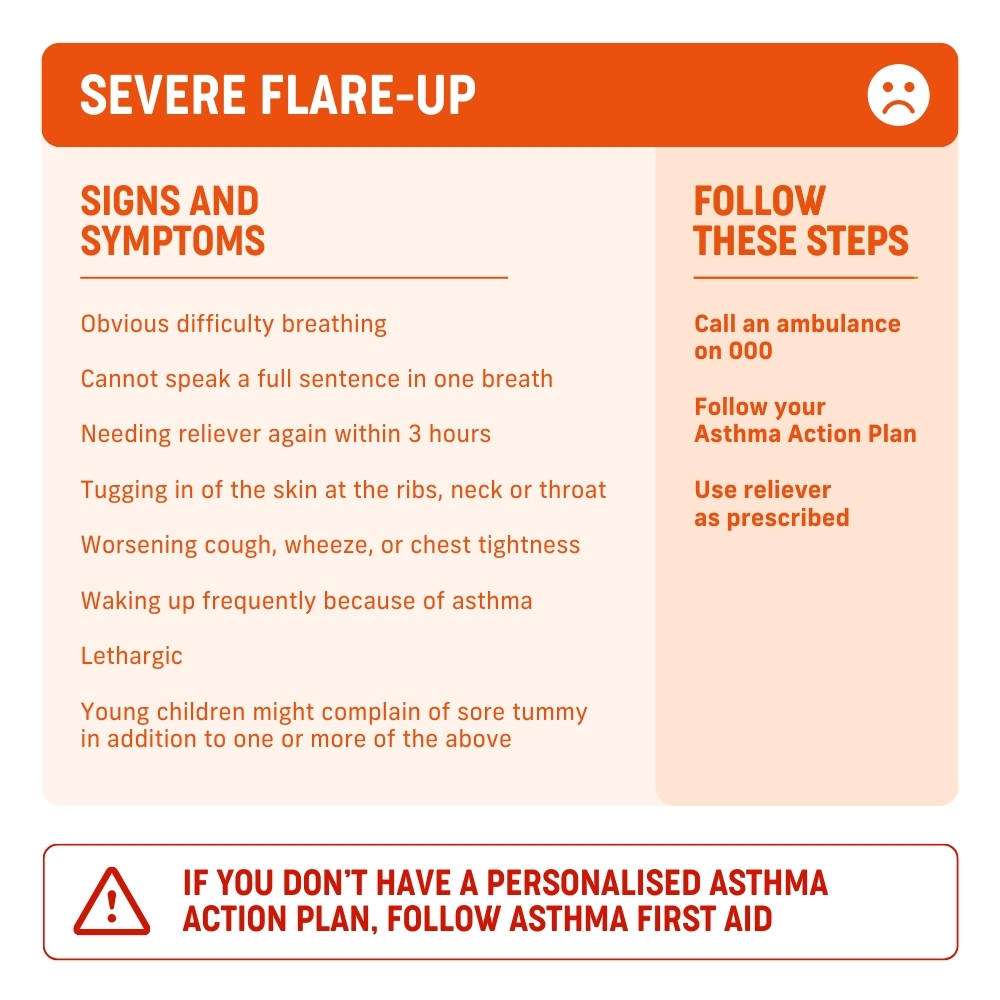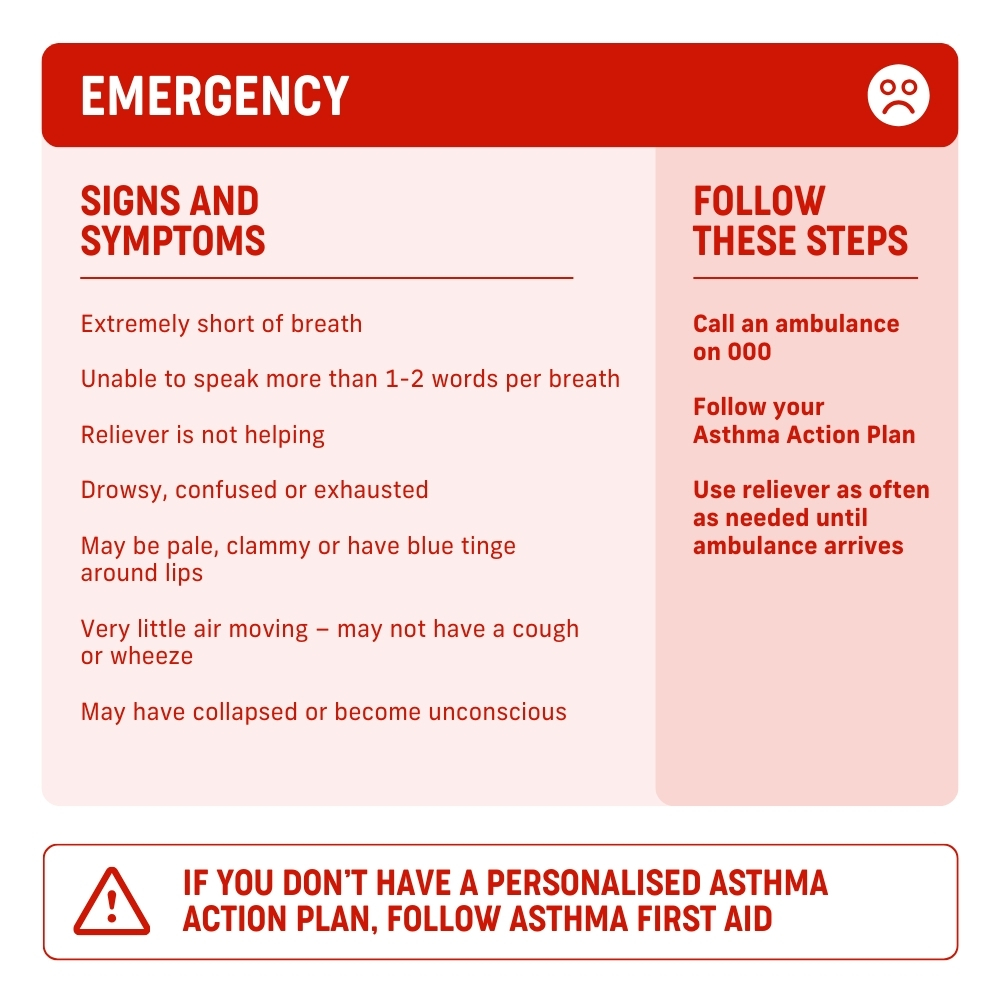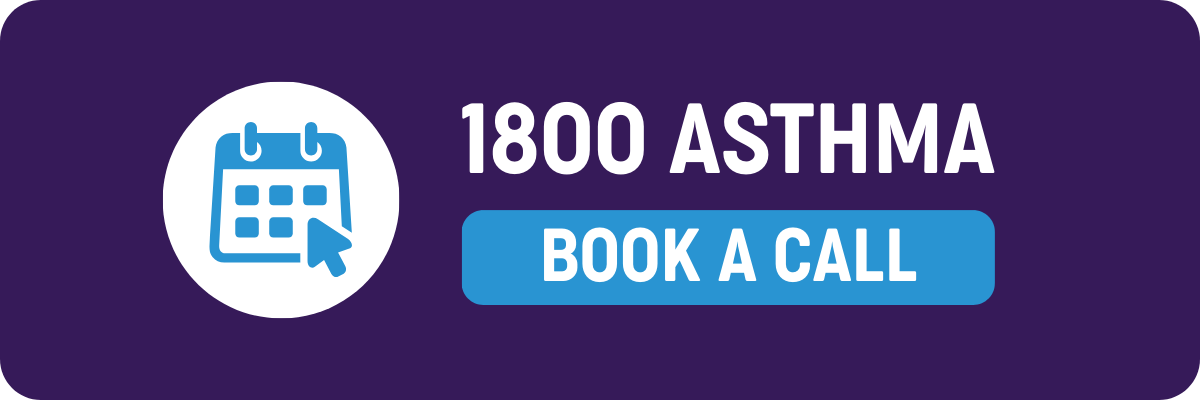What are the symptoms of asthma?
Asthma symptoms are the signs, effects or feelings that you may notice as a result of having asthma. Your asthma symptoms are caused by changes in the airways (breathing tubes) of your lungs. These changes make it harder to breathe. Symptoms can range from mild to more serious and life-threatening.
Not all people with asthma have the same symptoms. Not all people with asthma have all the symptoms. But most people have more than one type of symptom. It’s rare to have only one of these asthma symptoms.
One of the key things about asthma is that the symptoms vary over time. Asthma symptoms are often worse at night or early morning, making it hard to sleep. Your symptoms will come and go depending on what triggers you are exposed to, and what asthma medicines you have used. But asthma is chronic, and never goes away, even if your symptoms do.
If your symptoms are persistent and never go away, no matter what medicines you use, talk to your doctor. Persistent symptoms could be caused by something else, and it is important to get a correct diagnosis, so you can get the correct treatment.
The most common asthma symptoms are:
 1. Cough
1. Cough
A cough happens because your airways have narrowed and more mucus has formed. A cough caused by asthma might be:
-
-
- an on-going cough or one that won’t go away
- a cough that only occurs during the night or early morning
- a cough during sport or activity
- a cough when excited or laughing.
-
 2. Wheezing
2. Wheezing
A whistling or squeaky sound when you breathe OUT is made by the narrowing of your airways.
 3. Shortness of breath
3. Shortness of breath
Feeling breathless, or out of breath, because your airways are too narrow to allow the air you need in or out easily. It feels like really hard work to suck air in or blow it out.
 4. Chest tightness
4. Chest tightness
This might feel like something is squeezing or sitting on your chest. This is the feeling of the muscles around your airways tightening.
You might have other symptoms that include:
- feeling tired
- increased heart rate
- becoming sweaty.
These symptoms may happen because of the extra work needed for breathing. Using all your chest muscles to help with your breathing means you need more energy, which makes your heart beat faster.
What Are Silent Symptoms?
Not all people with asthma will have a wheeze or cough during an asthma flare–up. Some people with asthma have silent symptoms. They may not notice any asthma symptoms until they become really unwell.
Being breathless can be a silent symptom. It’s not as obvious to you or others as coughing a lot or wheezing. It can also be ignored or passed off as thinking you are ‘just’ unfit or tired. For people with silent symptoms, sometimes their doctor will ask them to use a peak flow meter to help them measure whether their airways are narrowing.
If you or someone you care for has silent asthma symptoms, you should let people around you (doctors, school/daycare staff, work colleagues, family and friends) know so they can help and support you when you need it.
How to manage symptoms
We want people with asthma to live free from their symptoms. How you take care of your symptoms will affect how well your asthma is managed.
The first step in managing your asthma is knowing:
- what your symptoms are
- how to treat your symptoms
- how to avoid triggering your symptoms.
Knowing how bad or how often you get asthma symptoms will help you and your doctor to better understand how to treat them.
A written Asthma Action Plan from your doctor will also help you to organise this information all in one place.
To keep track of your symptoms, you can use an asthma app or the Calendar or Notes app on your phone to record them. A good tip is to assign the symptoms to different calendar colours.
You can also create a simple table on a page or use sticky notes to track your symptoms. You can record your symptoms over several days or a couple of weeks before visiting your doctor.
Are you getting used to asthma symptoms?
Sometimes, you might have asthma symptoms so often that you get used to these symptoms. It becomes the ‘new normal’ way of being or breathing.
Ignoring or putting up with symptoms can be dangerous because your asthma can become worse more quickly. Without treatment of your symptoms, there may also be long-term damage to your lungs.
If you have trouble with your symptoms, talk with your doctor about how they can help.
What should I do if I think I have asthma symptoms?
If you suspect you might have asthma after reading about the symptoms, you should see your doctor for a diagnosis. Don’t ignore the symptoms – if you do have asthma, the sooner you get it under control, the faster you can get back to living a full and active life.
Worsening asthma symptoms
Your asthma symptoms can become worse over time or very quickly. Signs and symptoms of worsening asthma include:



Use Asthma First Aid to treat worsening symptoms that are not improving.
Do you still have questions?
Book a free consult with our Asthma Educators. They can provide you with support between your doctor’s visits and give you the information you need to feel confident to have a productive conversation with your doctor about your asthma, or that of a loved one.





 1800 278 462
1800 278 462



